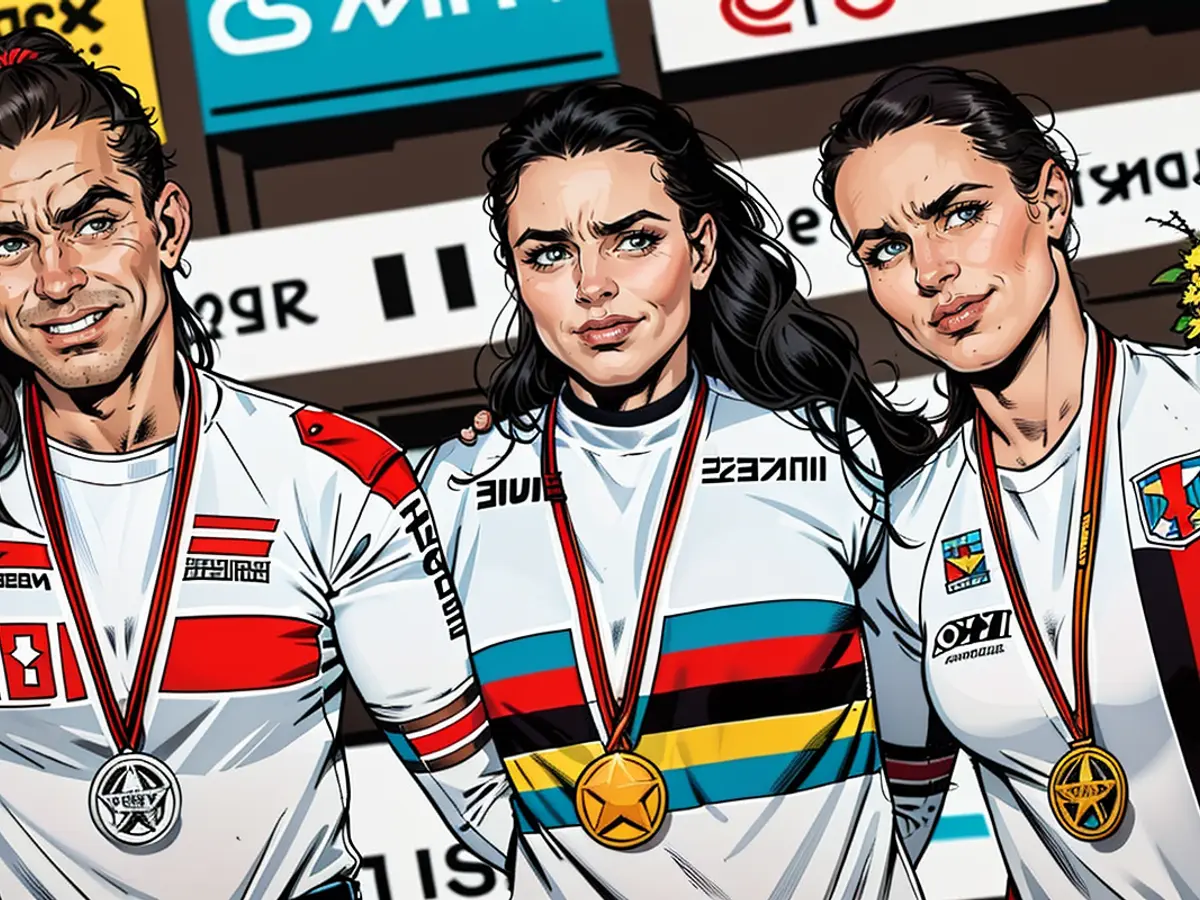Report: Russian Olympians support offensive war
Human rights lawyers accuse several Russian athletes of breaching IOC rules a few days before the Paris Olympics. These athletes were supposed to be "neutral." Some named individuals are reportedly found to have supported the attack on Ukraine.
A few days before the Paris Olympics, a human rights organization raises concerns against the majority of the eligible Russians and the IOC. According to a report by Global Rights Compliance, ten of the fifteen Russian athletes declared as "neutral" have allegedly violated the IOC rules: They supported the war on Ukraine or were linked to the military.
Despite "clear evidence of violations," the IOC did not act in accordance with its own rules and invited tennis players, cyclists, canoeists, trampolinists, and swimmers, claimed the lawyers from Global Rights Compliance. The International Olympic Committee responded to an AFP inquiry, stating it could not comment on individual cases or the decision of the responsible commission.
The report from the human rights organization includes the cyclists Alena Iwantschenko and Tamara Dronowa. Iwantschenko is said to have shared an image of Soviet dictator Joseph Stalin with the caption "an armistice with the enemy is possible after its destruction." Dronowa is alleged to be in contact with security forces and publicly endorsed the war.
Harsh Criticism of the IOC
Alexei Korowaschkow (Canoe), Evgenii Somov (Swimming), Anschela Bladzewa (Trampolin), Mirra Andrejewa, Pawel Kotow, Diana Schnaier, and Elena Wesnina are also mentioned in the report. Additionally, some of the 16 eligible Belarusians are reported to have violated the neutrality requirements.
"If the declared goal of the IOC is to 'build a better world through sport,' then the IOC must take action to demonstrate that it - and the companies associated with it - do more than just issue ethical and human rights statements for all," said Wayne Jordash, President of the Netherlands-based organization Global Rights Compliance.
After the Russian troops' invasion of Ukraine, the International Olympic Committee initially imposed a ban on athletes from Russia and the affiliated Belarus, but later relaxed it. If the athletes from both countries meet the necessary criteria, have not been identified as war supporters, and have no military connections, they are allowed to compete in Paris.
The IOC invited more than 15 Russians and 16 Belarusians after a review by a three-member commission, but the Russian Judo and Wrestling Federation refused to let their athletes participate. The Olympics begin on July 26.
In light of the allegations, Russia faces criticism for its athletes supporting the attack on Ukraine, which has led to concerns about their participation in the Olympic Games 2024 in Paris. Despite proof of rule breaches by several Russian athletes, the International Olympic Committee has remained silent on the issue, sparking harsh criticism from human rights advocates.








